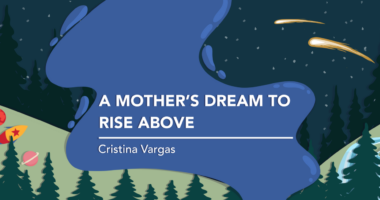Brineura, for Batten CLN2, Named One of Year’s Top Health Innovations by Popular Science

Brineura (cerliponase alfa), the first therapy approved to treat children with Batten disease, received the 2017 “Best of What’s New” award in the health category by Popular Science, a science and technology magazine.
Brineura is BioMarin’s therapeutic product developed to treat the underlying cause of tripeptidyl peptidase 1 (TPP1) deficiency, also known as neuronal ceroid lipofuscinosis type 2 (CLN2), a very rare form of Batten disease, which is a rare disease in itself.
Brineura slows the loss of ability to walk or crawl in symptomatic pediatric patients with late infantile Batten disease ages 3 or older.
The U.S. Food and Drug Administration (FDA) approved Brineura in April 2017, followed by the European Medicines Agency (EMA), which approved Brineura in the European Union in June 2017.
The award was given to Brineura and 11 other health innovations after a review of thousands of products across 11 categories, like aerospace, auto, engineering, entertainment, gadgets, and more.
“We are honored that Brineura has been recognized as one of the top scientific accomplishments in 2017 by Popular Science,” Jean-Jacques Bienaimé, BioMarin’s chairman and chief executive officer, said in a press release.
“As the first enzyme replacement therapy to be directly administered to the brain, our hope is that this scientific breakthrough blazes a trail for more therapies to treat other neurodegenerative diseases in a meaningful way.”
According to the award announcement in Popular Science, “Replacement enzymes had been too big to cross through the brain’s protective membrane. With Brineura, surgeons bypass that hurdle by inserting a port into a child’s head and infusing the enzyme.”
Brineura replaces the TPP1 enzyme, which is deficient in these patients, by administering it directly into the cerebrospinal fluid surrounding the brain.
“Until this year, there was no approved treatment for children with any form of Batten disease. Our desire is that this therapy for the CLN2 form of the disease and this recognition of scientific achievement will encourage research into other forms of this devastating disease,” said Margie Frazier, PhD, executive director of the Batten Disease Support and Research Association (BDSRA).
“Brineura represents a collaborative scientific effort among patients, industry, and academia to bring forth a treatment that seemed impossible just five years ago,” she said.
Batten disease and other forms of NCL are estimated to occur in two to four of every 100,000 live births in the U.S., and are considered quite rare. Some types of Batten are more rare than others, such as CLN2, which is estimated to affect about 20 children born in the U.S. each year (fewer than one in a million Americans).





